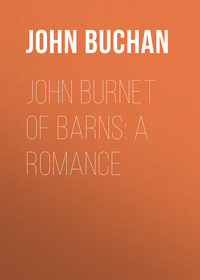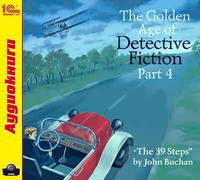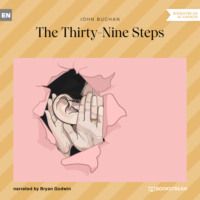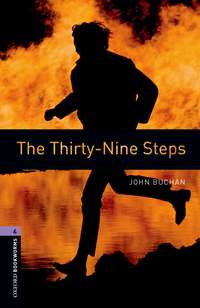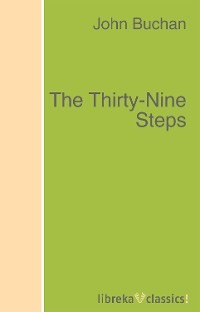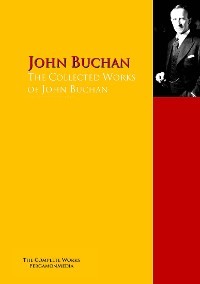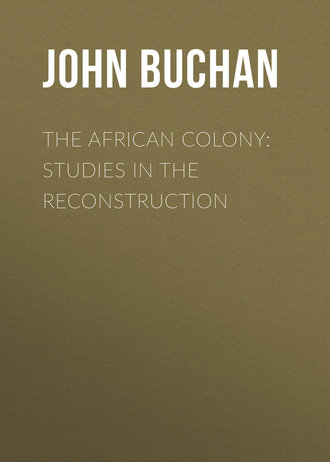 полная версия
полная версияThe African Colony: Studies in the Reconstruction
But the chief factor in Dutch dissatisfaction was undoubtedly Lord Glenelg’s limitation of the eastern border line. There is something to be said for the view of that discredited, and, to tell the truth, not very wise statesman. The Boer was a bad neighbour for a Kaffir people. He was always encroaching, spurred on by that nomadic something in his blood – a true Campbell of Breadalbane, who built his house on the limits of his estate that he might “brise yont.” A buffer state was apt to become very soon a Boer territory. Better to try and establish a strong Kaffir people, who might attain to some semblance of national life, and under the maternal eye of Britain become useful and progressive citizens. So reasoned Lord Glenelg and his advisers, missionary and official. Unfortunately facts were against him, the chimera of a Kaffir nation was soon dispelled, and ten years later Sir Harry Smith, a governor who did not suffer from illusions, made the eastern province a Kaffir reserve under a British commissioner. The frontier Boer, however, was not in a position to share any sentiment about a Kaffir nation. He saw his cattle looted, his family compelled to leave their newly acquired farm, and a long prospect of Kaffir raids where the presumption of guilt would always be held to lie against his own worthy self. Above all things he saw a barred door. No more “brising yont” for him on the eastern border. Expansion, space, were as the breath of his nostrils, and if he could not have them in the old colony he would seek them in the untravelled northern wilds.
There were thus certain well-defined reasons for the Great Trek in contemporary politics which, combined with distorted memories like Slachter’s Nek, made up in Boer eyes a very complete indictment against Pharaoh and his counsellors. But the real reason lay in his blood. Had the British Government been all that he could desire, he would still have gone. He was a wanderer from his birth, and trekking, even for great distances, was an incident of his common life. A pastoral people have few vested interests in land. There are no ancient homesteads to leave, or carefully-tended gardens or rich corn-lands. Their wealth is in their herds, which can be driven at will to other pastures. The Boer rarely built much of a farm, and he never fenced. A cottage, a small vegetable-yard, and a stable made up the homestead on even large farms on the border. There was nothing to leave when he had gathered his horned cattle into a mob, yoked his best team to his waggon, and stowed his rude furniture inside. With his rifle slung on his shoulder, he was as free to take the road as any gipsy. He was leaving the country of the alien, where mad fancies held sway and unjust laws and taxes oppressed him. He was bound for the far lands of travellers’ tales, the country of rich grass and endless game, where he could live as he pleased and preserve the fashions of his fathers unchanged. He would meet with fierce tribes, but his elephant-gun, as he knew from experience, was a match for many assegais. There was much heroism in the Great Trek, but there was also for the young and hale an exhilarating element of sport. To them it was a new, strange, and audacious adventure. No predikant accompanied the emigrants. The Kirk did not see the Scriptural parallel, and to a man preferred the treasure in Egypt to the doubtful fortunes of Israel.
The first party consisted of about thirty waggons, under the leadership of Louis Trichard and Jan van Rensburg. They travelled slowly, the men hunting along the route, and outspanned for days, and even weeks, at pleasant watering-places. The main object of those pioneers was to ascertain the road to Delagoa Bay; so they did not seek land for settlement, but pushed on till they came to Piet Potgieter’s Rust, a hundred miles or so north of Pretoria, which they thought to be about the proper latitude. Here the party divided. Van Rensburg and his men went due east into the wild Lydenburg country on their way to the coast, and were never heard of again. Trichard waited a little, and then slowly groped his way through the Drakensberg to Portuguese territory. The band suffered terribly from fever; their herds were annihilated by the tsetse fly, of which they now heard for the first time; but in the end about twenty-six survivors struggled down to the bay and took ship for Natal. So ended the adventure of the path-finders. The next expedition was led by the famous Andries Potgieter, and came from the Tarka and Colesberg districts. The little Paulus Kruger, a boy of ten, travelled with the waggons to the country which he was to rule for long. Potgieter settled first in the neighbourhood of Thaba ’Nchu on the Basuto border, and bought a large tract of land from a Bataung chief. Farms were marked out, and a few emigrants remained, but the majority pushed on to the north and east. Some crossed the Vaal, and finding a full clear stream coming down from the north, christened it the Mooi or Fair River; and here in after-days, faithful to their first impression, they planted the old capital of the Transvaal. Potgieter with a small band set off on the search for Delagoa Bay, but he seems to have lost himself in the mountains between Lydenburg and Zoutpansberg. On his return he found that Mosilikatse’s warriors had at last given notice of their presence, and had massacred a number of small outlying settlements. So began one of the sternest struggles in South African history.
Potgieter gathered all the survivors into a great laager at a place called Vechtkop, between the Rhenoster and Wilge rivers. The precaution was taken none too soon, for one morning a few days later a huge native army appeared, led by the chief induna of Mosilikatse. The odds, so far as can be gathered, were about a hundred to one, but the little band was undaunted, and Sarel Celliers, a true Cromwellian devotee of the Bible and the sword, called his men to prayer. Then forty farmers rode out from the laager, galloped within range, spread out and fired a volley, riding back swiftly to reload. They did good execution, but forty men, however bold, cannot disperse 5000, and in a little the Matabele were round the laager, and the siege began. The defence was so vigorous that after heavy losses the enemy withdrew, driving with them the little stock which formed the sole wealth of the emigrants.
The glove had been thrown down and there could be no retreat. Midian must be destroyed root and branch before Israel could possess the land. After a short rest Potgieter and Gerrit Maritz began the war of reprisals. With a commando of over 100 men and a few Griqua followers, they forded the Vaal, crossed the Magaliesberg, and arrived at Mosilikatse’s chief kraal at Mosega. The farmers’ victory was complete. Over 400 of the Matabele were slain, several thousand head of cattle secured, and the kraal given to the flames. Potgieter returned to found the little town of Winburg in memory of his victory, and, with the assistance of Pieter Retief, to frame a constitution for the nascent state. But Mosilikatse still remained. He had not been present at the debâcle of Mosega, and while he remained on the frontier there was no security for life and property. New recruits had come up from the south, including the redoubtable family of Uys, the horses were in good condition, all had had a breathing-space; so a new and more formidable expedition started in search of the enemy. They found him on the Marico, and for nine days fought with him on the old plan of a charge, a volley, and a retreat. Then one morning there was no enemy to fight; a cloud of dust to the north showed the line of his flight; Mosilikatse had retired across the Limpopo. Whereupon the emigrants proclaimed the whole of the late Matabele territory – the Transvaal, the Orange River Colony, and a portion of Bechuanaland – as theirs by the right of conquest.
So runs the tale of the Great Trek, – rather an Iliad than an Odyssey, perhaps, and a very bloodthirsty Iliad, too. To most men it must seem a noble and spirited story. Whatever the justice of the emigrants’ grievances, they conducted themselves well in their self-imposed exile. Potgieter and his men were indeed rather exceptional specimens of their race, and they were strung to the highest pitch by Christian faith and the unchristian passion of revenge. They relapsed, when all was over, to a somewhat ordinary type of farmer, which seems to bear out the general conception of the Boer character – that, while it is capable of high deeds, it is powerful by sudden effort rather than by sustained and strenuous toil. The experiment which began so well should have ended in something better than two bourgeois republics. There are some who see in the tale nothing more than an unwarranted invasion of native territory, and a cruel massacre of a brave race. No view could be more unjust. The Matabele had not a scrap of title to the country, and had not dwelt in it more than a few years. The real owners, if you can talk of ownership at all, were the unfortunate Bataungs and Barolongs, whom the emigrants befriended. The Matabele were indeed as murderous a race of savages as ever lived, and their defeat was a moral as well as a political necessity. It is well to protect the aborigine, but when he is armed with a dozen assegais and earnestly desires your blood, it is safer to shoot him or drive him farther afield. That the Boers were guilty of atrocities in those fierce wars is undoubted, and, if some tales be true, unpardonable. But there are excuses to be made. When a man has seen his child writhing on a spear and his wife mutilated; when he reflects that he stands alone against impossible odds, and has a keen sense, too, of Scriptural parallels, – he may be forgiven if he slays and spares not, and even gives way to curious cruelties. Revenge and despair may play odd pranks with the best men: tout comprendre c’est tout pardonner.
What, then, is the proper view to take of this footnote to the world’s history, this Marathon of an unimaginative race? It is possible to see in it only an attempt of a half-savage people to find elbow-room for their misdeeds. The voortrekkers, it has been said, fled the approach of a mild and enlightened modern policy, invaded a land which was not theirs, slaughtered a people who had every right to resist them, and created for themselves space to practise their tyranny over the native, and perpetuate their exploded religious and political creed in a retrograde society. It is easy to say this, as it is easy to explain the doings of the Pilgrim Fathers as a flight from a too liberal and tolerant land to wilds where intolerance could rule unchecked. With the best will in the world to scrutinise Dutch legends, the Great Trek seems to me just that legend which can well support any scrutiny. For it was first and foremost a conflict between civilisations. There were strong and worthy men among the voortrekkers, as there were estimable people among their opponents. The modern political creed, based on English constitutionalism, stray doctrines of the French Revolution, and certain economic maxims from Bentham and Adam Smith, is, in spite of minor differences, common to the civilised world. This was the creed which was forced upon the Border Dutch, and, having received no education in the axioms on which it was based, they unhesitatingly rejected it, and clung to their old Scriptural feudalism. When two creeds come into conflict, the older and weaker usually goes under. But in this case the men on the losing side were of a peculiar temper and dwelt in a peculiar country. They took the bold path of carrying themselves and their creed to a new land, and so extended its lease of life for the better part of a century. Let us take the parallel of the American Civil War. The North fought for the cause of the larger civic organism and certain social reforms which were accidentally linked to it. The South stood for the principle of nationality, and for certain traditions of their own particular nationality. Roughly speaking, it was the same conflict; but the Southern creed perished because there was no practicable hinterland to which it could be transplanted. Had there been, I do not think its most stubborn opponents would have denied admiration to so bold an endeavour to preserve a national faith.
The Great Trek set its seal upon the new countries. The Orange River Colony and the Transvaal are still in the rural places an emigrant’s land. The farmhouse is the unit; the country dorps are merely jumbles of little shanties to supply the farmers’ wants. The place-names, with the endless recurrence of simple descriptive epithets like Sterkstroom or Klipfontein, or expressions of feeling like Nooitgedacht or Welgevonden, still tell the tale of the first discoverers. There is no obscurity in the nomenclature, such as is found in an old land where history has had time to be forgotten. Any farm-boy will tell you how this river came to be named the Ox-Yoke or that hill the Place of Weeping. It has made the people a solemn, ungenial folk, calculating and thrifty in their ways, and given to living in hovels which suggest that here they have no continuing city. Perhaps, as has been said, no performance, however stupendous, is worth loss of geniality; and the finer graces of life have never had a chance on the veld. There is gipsy blood in their veins, undying vagabondage behind all their sleepy contentment. The quiet of the old waggon journeys, when men counted the days on a notched stick that they might not miss the still deeper quiet of the Sabbaths, has gone into the soul of a race which still above all things desires space and leisure. It is this gipsy endowment which made them born warriors after a fashion; it is this which gives them that apathy in the face of war losses which discomfits their sentimental partisans. Britain in her day has won many strange peoples to her Empire; but none, I think, more curious or more hopeful than the stubborn children of Uys and Potgieter.
CHAPTER IV.
THE BOER IN SPORT
It is a fair working rule of life that the behaviour of a man in his sports is a good index to his character in graver matters. With certain reservations the same holds true of a people. For on the lowest interpretation of the word “sport,” the high qualities of courage, honour, and self-control are part of the essential equipment, and the mode in which such qualities appear is a reflex of the idiosyncrasies of national character. But this is true mainly of the old settled peoples, whose sports have long lost the grim reality in which they started. To a race which wages daily war with savage nature the refinements of conduct are unintelligible; sport becomes business; and unless there is a hereditary tradition in the matter the fine manners of the true hunter’s craft are notable by their absence.
It is worth while considering the Boer in sport, for it is there he is seen at his worst. Without tradition of fair play, soured and harassed by want and disaster, his sport became a matter of commerce, and he held no device unworthy in the game. He hunted for the pot, and the pot cast its shadow over all his doings. His arms were rarely in the old days weapons of precision, and we can scarcely expect much etiquette in the pursuit of elephant or lion in a bush country with a smooth-bore gun which had a quaint trajectory and a propensity to burst. The barbarous ways which he learned in those wild games he naturally carried into easier sports. Let us admit, too, that the Boer race has produced a few daring and indefatigable hunters, who, though rarely of the class of a Selous or a Hartley, were yet in every way worthy of the name of sportsmen. I have talked with old Boers from the hunting-veld, and in their tales of their lost youth there was a fervour which the commercial results of their expeditions did not explain. But the fact remains that to an Englishman the Boers, with a few exceptions, are not a sporting race – they are not even a race of very skilful hunters. They came to the land when game was abundant and they thinned it out; but the manner of this thinning was as prosaic as the routine of their daily lives.
One advantage the Boer possessed in common with all dwellers in new lands – he was familiar from childhood with gun and saddle, and had to face the world on his own legs from his early boyhood. In this way he acquired what one might call the psychological equipment of the hunter. Any one who has hunted in wild countries will remember the first sense of strangeness, the feeling that civilisation had got too far away for comfort, which is far more eerie than common nervousness. To this feeling the Boer was an utter stranger. It was as natural for him to set a trap for a lion before returning at nightfall, or to go off to the hunting-veld for four winter months, as it was to sow in spring and reap in autumn. And because it was an incident of his common life he imported into it a ridiculous degree of domesticity. On his farm he shot for the pot; on his winter treks with stock to the bush-veld and the wilder hunting expeditions for skins and horns he carried his wife and family in his buck-waggon, built himself a hut in the wilds, and reproduced exactly the life of the farm. It was easy to reproduce anywhere, for it was simplicity itself. Mealie-meal, coffee, and some coarse tobacco were his supplies, and fresh meat when game fell to his gun. So it is not to be wondered at if hunting became to him something wholly destitute of romance and adventure, an affair like kirk and market, where business was the beginning and the end.
But besides the Boer who farmed first and hunted afterwards, there was the Boer who hunted by profession. The class is almost extinct, but in outlying farms one may still meet the old hunter and listen to his incredible tales. Some were men of the first calibre, the pioneers of a dozen districts, men of profound gravity and placid temper, who rarely told the tale of their deeds. But the common hunter is above all things a talker. Like the Kaffir, he brags incessantly, and a little flattery will lead him into wild depths. He lies to the stranger, because he cannot be contradicted; he lies to his friends, because they are connoisseurs in the art and can appreciate the work of a master. Boer hunting tales, therefore, should be received with extreme caution. They would often puzzle an expert lawyer, for they are full of minute and fallacious particulars, skilfully put together, and forming as a rule a narrative of single-hearted heroism. I have listened to a Boer version of a lion-hunt, and I have heard the facts from other members of the same party; and the contrast was a lesson in the finer arts of embroidery. But this society had its compensations. Those men live on the outer fringe of Boerdom; they have no part in politics and few ties to the civilised society of Pretoria; and the result is that race hatred and memory of old strifes have always had a smaller place in their hearts. Without the virtues of their countryman, they are often free from his more unsocial failings.
It is as a big-game hunter that he has acquired his reputation, and by big game he meant the lion and the elephant, animals which he had to go farther afield and run greater risks to secure. The old race of elephant-hunters were a strong breed, men in whom courage from long experience had become a habit; and certainly they had need of it with their long-stocked cumbrous flint-locks, which might put out a man’s shoulder in the recoil. They knew their business and took no needless risks, for elephant-hunting is a thing which can be learned. Save in thick bush, there is little real danger; and if the hunter awaits a charging elephant, a point-blank shot at a few yards will generally make the animal swerve. Mr Selous, whose authority is beyond question, has drawn these men as they appeared to him in Mashonaland – skilful shikarris, but jealous, uncompanionable, often treacherous as we count honour in sport; and Oswell’s story is the same. The lion, which, in spite of tales to the contrary, remains one of the two most dangerous quarries in the world, was a different affair to them. There was little commercial profit from shooting him, and they had no other motive to face danger. Nor can we blame them, for a charging lion to a man with an uncertain gun means almost as sure destruction as a shipwreck in mid-ocean. The Boer hunter shot him for protection, rarely for sport. Very few of the lions killed on the high veld fell to rifles; a trap-gun set near a drinking-place was the ordinary way of dealing with them. Mr Ericsen, the most famous of Kalahari pioneers, who brought many herds of Ovampa and Damara cattle across the desert, used to tell this story of Boer prowess in lion-hunting. He was travelling with a party of Boer hunters, and one night a lion killed one of the oxen. The men were in a fury, and urged Mr Ericsen to follow, bragging that each of them was prepared to tackle the beast single-handed. Mr Ericsen said that he was no hunter, but promised to let them have his dogs and natives to follow up the spoor in the morning. But when the morning came the party had silently dispersed, mortally afraid lest they should be expected to fulfil their promises. In the long list of South African big-game hunters the names are mostly English, – Gordon-Cumming, Byles, Hartley, Oswell, Sharpe, Selous, Francis, John Macdonald, – and the reason does not wholly lie in the inability and disinclination of the Boer to bring his deeds from the rhetoric of talk to the calmer record of print.
At other four-footed game, from the buffalo to the duiker, the Boer was generally a fair shot, in some cases a good shot, but very rarely a great shot. Reputation in marksmanship was very much a matter of accident. A happy fluke with them, as with natives, might make a reputation for life, though the man in question shot badly ever afterwards. The number of Boer marksmen of the first rank could be counted on the ten fingers. On the other hand, the nature of their life produced a very high average. The Boer boy shot from the day he could hold a rifle, and there were few utter failures among them. To be sure, it was not pretty shooting. His first business was to get the game, and if he could do it by sitting on a tree near the stream and killing at twenty yards, he did it gladly. When he went hunting he reflected that his cartridges cost him 3d. apiece, and were all that stood between him and starvation; so very naturally he became as poky a shot as the English gamekeeper who is sent out to kill for the table. If a hunter took out 500 cartridges and brought back 120 head of game, he was reckoned a good man at his work. To this, of course, there were exceptions, such as old Jan Ludig, who once in Waterberg shot five gnu (who travel in Indian file) within seven miles. The name of Mr Van Rooyen, too, familiar to all Matabele hunters, shows what the Dutch race can produce in the way of marksmanship and veld-craft. In one branch of the chase they were consummate masters. The Boer method of stalking is an art by itself, for it is really a kind of driving, by showing oneself at strategic points till the game is forced into suitable ground. In open country they also followed with great success the method of riding down. Mounted on a good shooting pony, the hunter galloped alongside a herd till he was within reasonable distance; then in a trice he was on the ground, had selected his animal, and fired – all within a few seconds. This was a risky game for a large party, owing to the very rude etiquette which prevailed on the subject of shooting in your neighbour’s direction; and I have heard of many seriously wounded and even killed by their companions’ shots. Still another way was to ride alongside an animal and shoot him from the saddle at a few paces’ distance. This was called “brandt” or “burning,” and required a firm seat and a very steady eye.
Birds were thought little of, except by some of the more advanced farmers and by sportsmen from the towns. The country is full of many excellent sporting birds: guineafowl, quail, francolin, duck, geese, and several kinds of partridge and bustard; but though a few farmers shot wildfowl on their dams, the average Boer was a poor shot with a gun, and when he did use one he liked to take his birds sitting. A hunter might kill a bird neatly with a rifle, which he would miss at shorter range with a shot-gun. This fashion is quickly passing. Many farmers possess excellent guns of the latest pattern; and I have known Boers who could hold their own with credit in Norfolk or Perthshire. As shooting is becoming more of a sport and less of a business, etiquette is growing up; and the Boer is learning to spare does and ewes and take pleasure in hard shots, where his father would have slaughtered casually and walked long and far to spare his cartridges. The new order is bringing better manners, but nothing can restore the noble herds of game which fell unlamented and unnoted under the old régime.


